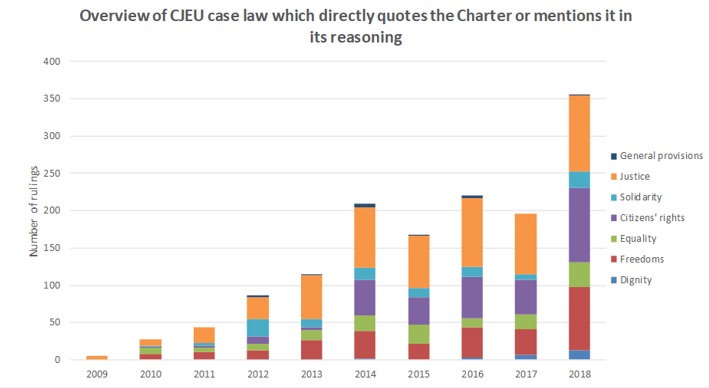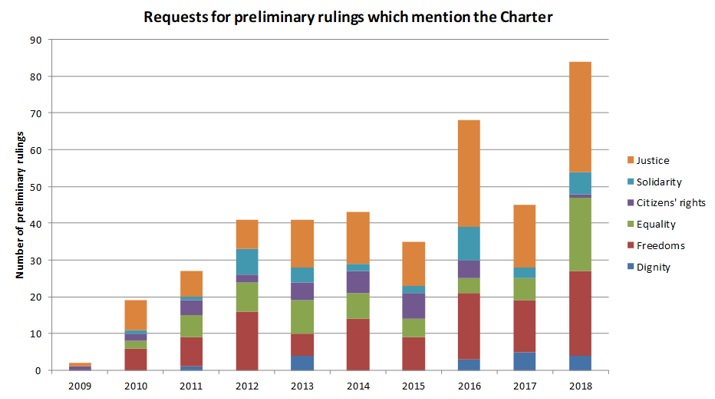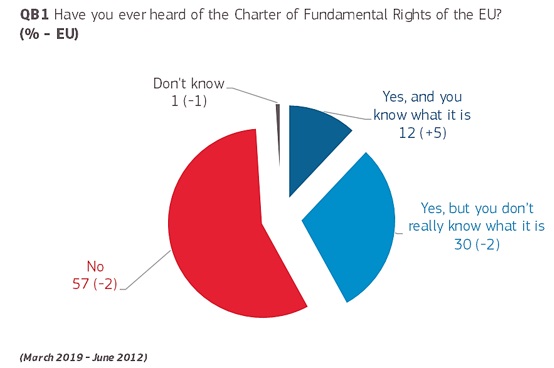Opening remarks by Commissioner Moscovici on the European Semester 2019 Spring Package
Bonjour. Nous venons d’adopter le dernier paquet de printemps de cette Commission, comprenant les recommandations par pays et un certain nombre de rapports et de décisions budgétaires importantes. La Commission prend ainsi pleinement ses responsabilités jusqu’au terme de son mandat et reste fidèle à sa mission initiale de soutien à la croissance, à l’emploi et de respect au sérieux budgétaire.
Je vois trois messages importants dans ce paquet aujourd’hui.
Premier message, et une bonne nouvelle : c’est la fin du cycle des Procédures de Déficits Excessifs qui a commencé pendant la crise financière. Le moment est venu de clôturer la dernière de ces procédures, celle de l’Espagne, ouverte il y a 10 ans. Je vous rappelle qu’en 2011, 24 Etats-membres étaient couverts par cette procédure. Quand cette Commission a pris ses fonctions en novembre 2014, il y en avait encore 11. On voit donc le chemin parcouru et je veux adresser toutes mes félicitations à l’Espagne, les efforts faits payent leur fruit même si nous connaissons les difficultés qui demeurent, notamment en termes de chômage.
Ceci marque donc la fin d’un long et pénible chemin non seulement pour l’Espagne mais pour toute l’Union Européenne et la zone euro. La décision d’abrogation prise par la Commission aujourd’hui vient saluer les efforts du peuple espagnol. Je veux ici les encourager dans la voie du sérieux budgétaire.
Deuxième message important : avec ce paquet, cette Commission continue à fournir la guidance économique et budgétaire nécessaire à nos Etats-membres pour assurer la coordination de nos économies et ainsi nous rendre plus solides individuellement et collectivement. Des recommandations ciblées qui visent les défis prioritaires auxquels chaque Etat-membre doit faire face pour renforcer la croissance, pousser la création d’emplois, car le chômage reste un problème commun, et assurer le développement durable, car c’est un enjeu pour demain. La prochaine Commission devra veiller, au printemps 2020, puisque c’est à elle qu’il reviendra de prendre le relais à la bonne mise en œuvre de ces recommandations.
Aujourd’hui aussi, la Commission renforce une dimension supplémentaire de ces recommandations en visant certaines pratiques dommageables pour nos économies et nos sociétés. Nos recommandations visent donc à soutenir la lutte contre le blanchiment d’argent dans certains pays (le Danemark, l’Estonie, la Lettonie, la Bulgarie, Malte, la Suède); à sauvegarder l’indépendance judiciaire et l’Etat de droit à Chypre et en Hongrie; et à combattre la planification fiscale agressive à Chypre, en Hongrie, en Irlande, au Luxembourg, à Malte et aux Pays Bas.
S’agissant de la planification fiscale agressive, et conformément à la recommandation de la zone euro, nous proposons pour la première fois une recommandation spécifique aux États membres identifiés sur la base d’un examen approfondi des règles fiscales, des indicateurs économiques pertinents et des analyses spécifiques par pays. Il y a plus de progrès dans certains pays, notamment les Pays-Bas et l’Irlande qui vont dans la bonne direction, mais il reste des remarques à faire et partout nous souhaitons encourager la poursuite des ces progrès.
Enfin, troisième message politique important, la Commission prend aujourd’hui ses responsabilités sur un certain nombre de pays, faisant face à des situations sensibles, mais différentes et qui exigent, encore une fois, une application intelligente mais rigoureuse de nos règles communes.
Nous avons adopté ce matin le troisième rapport de surveillance renforcée pour la Grèce. Comme vous le savez, ces rapports trimestriels permettent de surveiller la conformité aux objectifs budgétaires convenus et la poursuite des réformes structurelles. La Grèce a commencé ce nouveau chapitre post-programme de façon globalement positive, avec un excédent budgétaire pour la troisième année consécutive en 2018. Elle a entrepris un retour progressif au financement de marché qui reste un objectif pour le peuple grec. Des mesures supplémentaires en faveur de la dette, d’un montant d’environ 970 millions d’euros, ont été mises en œuvre en avril. Beaucoup a donc été fait pas les autorités grecques pour redresser l’économie grecque.
Notre rapport fait également état d’un certain nombre de retards dans la mise en œuvre des engagements de réforme. Il met également en lumière les risques qui pèsent sur la réalisation des objectifs budgétaires suite au paquet de mesures adoptées le mois dernier. Nous devrons donc être attentifs à cet objectif de surplus budgétaire dans les prochains mois. Ce qui n’empêche pas de s’interroger sur le montant exact des surplus qui, en régime de croisière, devra être atteint.
Quel que soit le prochain gouvernement, la Commission continuera d’aider la Grèce à parvenir à une reprise économique durable. Le rapport d’aujourd’hui constitue un point de départ pour le dialogue constructif que nous souhaitons maintenir avec les autorités grecques, comme nous l’avons eu tout au long de ces années.
La Hongrie et la Roumanie mettent en œuvre des politiques budgétaires expansionnistes au lieu de procéder à un assainissement de leurs finances publiques, dans un contexte pourtant de conjoncture économique favorable, comme prévu par les règles. Compte tenu du non-respect des recommandations précédentes, nous recommandons au Conseil de conclure qu’aucune mesure efficace n’a été prise et que la procédure pour déviation significative devrait être renouvelée pour les deux pays. Cette procédure devrait s’appliquer pour 2019 et 2020, avec un effort fiscal annuel demandé de 1% et 0,75% respectivement.
Ensuite, nous avons adopté pour quatre Etats-membre des rapports basés sur l’article 126(3) du Traité, examinant les raisons qui ont mené à un non-respect des critères de la dette ou du déficit. Ces pays sont la France, la Belgique, Chypre et l’Italie. Dans tous les cas, il y a un non-respect de ces critères (isolément ou combiné). L’analyse tient compte des prévisions pour 2019 et 2020 ainsi que de tous les facteurs pertinents.
Pour la France, notre rapport conclut que les deux critères, du déficit et de la dette – sont respectés. Concernant le déficit, le dépassement de la limite de 3% projetée pour 2019 serait limité (3,1%) et temporaire (une année). Cette augmentation est due au remplacement du CICE, le crédit d’impôt compétitivité emploi, une mesure adoptée par la France lorsque j’étais ministre des Finances, par des baisses de cotisations pérennes, opération qui a un impact ponctuel en 2019 de 0,9%. Dès 2020 dans nos prévisions, le déficit revient donc largement sous 3% à 2,2%. Et concernant la dette, dont je persiste à penser qu’elle doit être réduite, le respect global par la France du bras préventif a été considéré un facteur pertinent pour ne pas ouvrir une procédure.
Dans le cas de la Belgique en revanche, nous constatons que le cas est trop borderline pour conclure avec certitude. Car si le solde structurel était neutre en 2018 et devrait l’être aussi en 2019, plutôt que de s’améliorer, il faut constater que la dette se réduit progressivement et que – à 1,3% cette année selon nos prévisions – le déficit nominal resterait bien en dessous de 3%. Donc ces éléments sont positifs et compensent selon notre point de vue le solde structurel pour 2018 et 2019. Là aussi pas de procédure ouverte.
Turning to Cyprus, our report was triggered by the fact that the headline deficit reached 4.8% of GDP in 2018. However, this was entirely due to banking support measures which were necessary to preserve financial stability. Moreover, for both this year and 2020, we forecast a significant budgetary surplus and a strongly declining public debt. We have thus decided against opening an EDP given that no further adjustment is needed and a procedure would add little value – and would appear counterintuitive to citizens. Let’s not be too formal, this wouldn’t have made any sense.
As regards Italy, the figures have been given by Valdis, I will now just saythat they are problematic on two fronts:
Instead of being reduced, Italy’s public debt, which is a major burden on the economy, increased further from 131% to 132% of GDP.
And the structural deficit, which should have declined by 0.3% according to the Council recommendation, instead widened by 0.1%, meaning there was a gap of 0.4 percentage points to compliance.
Unfortunately, also for 2019 we forecast a slight worsening in the structural deficit, whereas the Council had recommended a reduction of 0.6% – and the Italian authorities had made a commitment last December to avoid any deterioration.
Finally for 2020, we forecast a large increase in the deficit both in structural and nominal terms, to 3.5% of GDP, well above the Treaty threshold.
On this basis, and having examined all relevant factors, we have concluded that the debt criterion is currently not respected and that a debt-based Excessive Deficit Procedure is warranted for Italy. Let’s be clear, we are not opening today this EDP. It is now for the Council to express its views on this objective and on our analysis which is purely factual. Pending this opinion, I see no need to speculate further at this stage, neither in the mindset, neither in the markets As always, with all Member States, we are ready to look at new data that could change this analysis. La mia porta rimane aperta. For those who don’t understand my Italian, I would say, my door is open, ma porte est ouverte. Nous pouvons toujours échanger et écouter.
With this last spring package of our mandate, we are presenting a coherent set of recommendations to build on what we have achieved in these past five years – and to tackle the major economic and societal changes Europe is set to face in the coming years.
In particular, we reaffirm today our commitment to an intelligent application of the Stability and Growth Pact. That means basing our decisions not on a mechanistic or legalistic application of the rules, but on whether they are good for growth, jobs and sound public finances.
Thank you for your attention and I will now hand over to Marianne.



